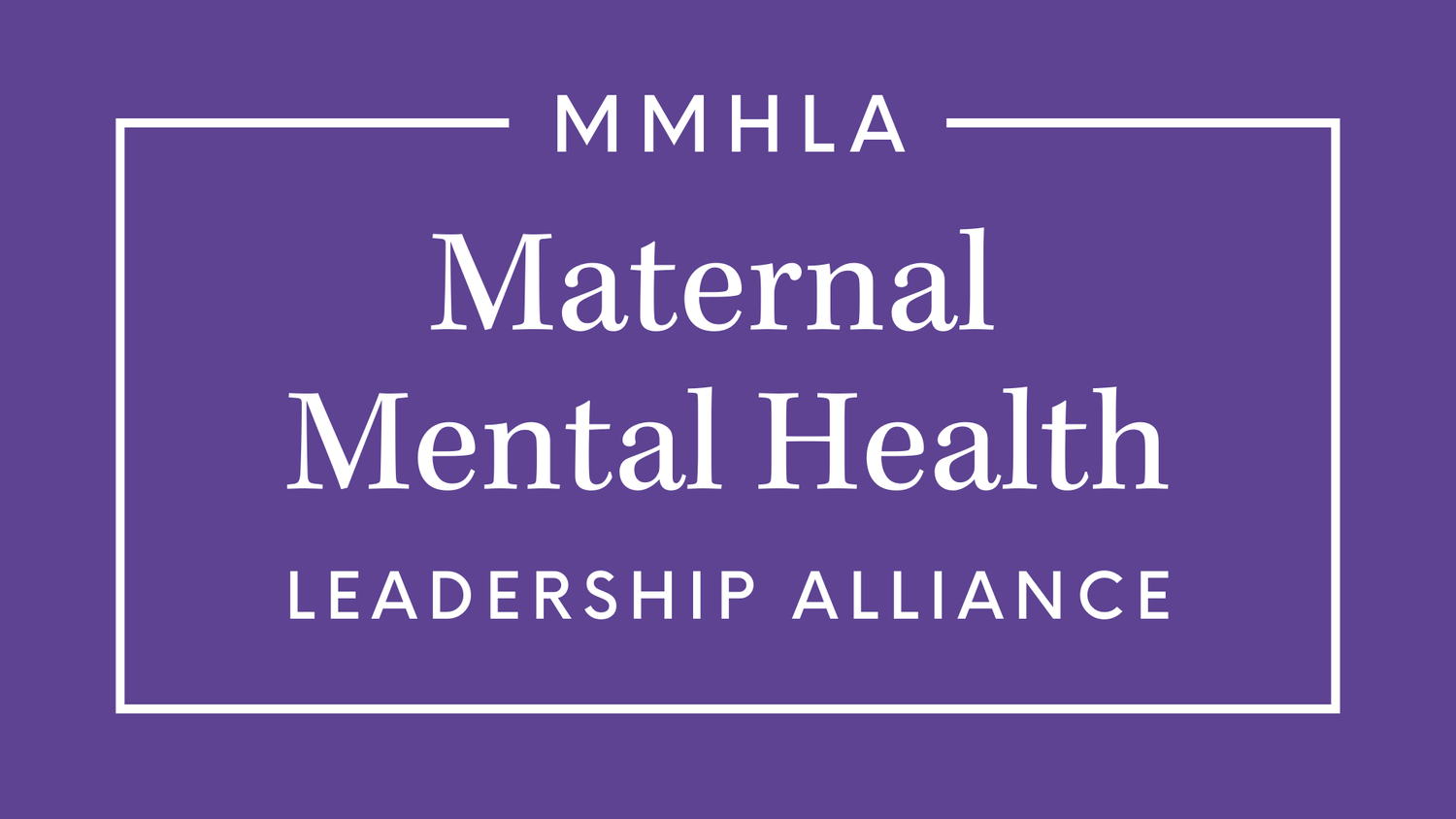Template Letter for Elected Officials
Copy and paste the letter below and edit with your personal story and other information you feel is important to share. Not sure who your elected officials are? Use these links:
Dear Representative [insert name] or Senator [insert name],
I am your constituent from [city, state], and I am writing to encourage you to support the mental health and wellbeing of our nation’s mothers during and following pregnancy.
ABOUT MATERNAL MENTAL HEALTH CONDITIONS:
Mental health conditions are the most common complication of pregnancy and childbirth, affecting 1 in 5 women (or 800,000 families) each year. [1,2]
Tragically, suicide and overdose combined are the leading cause of maternal mortality, accounting for 22% of deaths to women during or following pregnancy, and contributing to our nation’s staggering maternal mortality rates. [3]
The cost of NOT treating these conditions is $14 billion each year in addressing poor birth and health outcomes and accounting for lost wages and productivity. [4]
Untreated maternal mental health conditions can have long-term, negative impacts on mother, baby, family, and society. [5]
Certain individuals are at increased risk for experiencing MMH conditions including people of color, those impacted by poverty, people with disabilities, military service members, and military spouses. [6,7,8]
THREE WAYS YOU CAN HELP:
Fully fund the National Maternal Mental Health Hotline at $10 million in the FY25 federal budget. The Hotline provides free, confidential, 24/7 voice and text support in English and Spanish (and translation services for 60 additional languages) for mothers and others impacted by maternal mental health conditions. Learn more at https://mchb.hrsa.gov/national-maternal-mental-health-hotline.
Fully fund the Screening and Treatment for Maternal Mental Health and Substance Use Disorder Program at $24 million in the FY25 federal budget. Currently only 12 states receive funding for these important programs that expand the workforce to treat maternal mental health conditions. Funding this program at $24 million will enable half the states to receive funding. Learn more at https://mchb.hrsa.gov/programs-impact/screening-treatment-maternal-mental-health-substance-use-disorders-mmhsud.
Co-sponsor the Maintaining Our Obligation to Moms Who Serve (MOMS) Act of 2024 (H.R.7087 / S.3641). The MOMS Act will support our nation’s military mothers, who experience maternal mental health conditions at almost twice the rate of the civilian population, with 36% of female service members and military spouses impacted by maternal mental health conditions. The MOMS Act will create a 5-year pilot project, funded at $5 million a year, aimed at preventing maternal mental health conditions among uniformed service members and military spouses.
MY STORY (Briefly share your personal story)
Example 1 | Lived experience: I experienced significant postpartum depression after my son was born in 2000, and it took me almost six months to get the help I needed. I would have greatly benefited from having a Hotline and people I could connect with during the middle of the night when I was up with my baby every 2 hours. For the last 20 years, I have advocated for maternal mental health, and I know that thousands of mothers and families could benefit from these programs.
Example 2 | State with federal funding for psychiatry access program: Our state is lucky: we are one of the 12 states funded by the federal government to create a psychiatry access program to provide training and treatment for maternal mental health. Please continue to support this important program so mothers and childbearing individuals in our state get the help they need.
Many thanks for your support of these important programs.
Sincerely,
Name | location | phone number
position | organization
Example:
Adrienne Griffen | Arlington, VA | 571-643-2738
Executive Director | Maternal Mental Health Leadership Alliance | www.mmhla.org
CITATIONS:
Fawcett, E. J., Fairbrother, N., Cox, M. L., White, I. R., & Fawcett, J. M. (2019). The Prevalence of Anxiety Disorders During Pregnancy and the Postpartum Period: A Multivariate Bayesian Meta-Analysis. The Journal of Clinical Psychiatry, 80(4), 18r12527. https://doi.org/10.4088/JCP.18r12527.
Gavin, N. I., Gaynes, B. N., Lohr, K. N., Meltzer-Brody, S., Gartlehner, G., & Swinson, T. (2005). Perinatal depression: a systematic review of prevalence and incidence. Obstetrics and Gynecology, 106(5 Pt 1), 1071–1083. https://doi.org/10.1097/01.AOG.0000183597.31630.db.
Trost SL, Beauregard J, Njie F, et al. (2022). Pregnancy-Related Deaths: Data from Maternal Mortality Review Committees in 36 US States, 2017-2019. Atlanta, GA. Centers for Disease Control and Prevention, US Department of Health and Human Services.https://www.cdc.gov/reproductivehealth/maternal-mortality/erase-mm/data-mmrc.html.
Luca DL, et al. (2020). Financial toll of untreated perinatal mood and anxiety disorders among 2017 births in the United States. American Journal of Public Health. https://www.ncbi.nlm.nih.gov/pmc/articles/PMC7204436/.
Byatt, N., Levin, L. L., Ziedonis, D., Moore Simas, T. A., & Allison, J. (2015). Enhancing Participation in Depression Care in Outpatient Perinatal Care Settings: A Systematic Review. Obstetrics and Gynecology, 126(5), 1048–1058. https://doi.org/10.1097/AOG.0000000000001067.
United States Government Accountability Office, (2022). Defense Health Care: Prevalence of and Efforts to Screen and Treat Mental Health Conditions in Prenatal and Postpartum TRICARE Beneficiaries. https://www.gao.gov/assets/gao-22-105136.pdf.
Taylor, J., Novoa, C., Hamm, K. & Phadke, S. (2019). “Eliminating Racial Disparities in Maternal and Infant Mortality: A Comprehensive Policy Blueprint,” Center for American Progress.https://www.americanprogress.org/article/eliminating-racial-disparities-maternal-infant-mortality.
Alhusen, J. L., Hughes, R. B., Lyons, G., & Laughon, K. (2023). Depressive symptoms during the perinatal period by disability status: Findings from the United States Pregnancy Risk Assessment Monitoring System. Journal of Advanced Nursing, 79, 223–233. https://doi.org/10.1111/jan.15482
